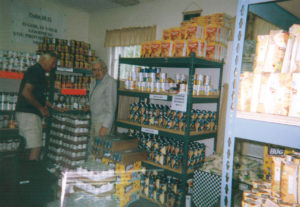Food Pantry Rules – 2021 – Pandemic

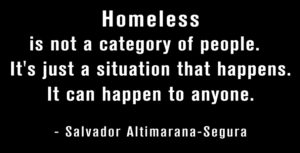
If you read my last post – “Food Pantry Rules” – you may have thought you were in some time warp. Travel had returned you to about 2010.
Well, not really.
The pandemic changed many details but the bones of a food pantry event are the same.
The volunteers and the people who shop at the pantry are the same.
Everyone comes together looking for groceries but often, they want and need far more.
Food pantry lines get longer every pantry day because people, families, struggle with change they didn’t ask for.
They are rewriting their destiny stories without a road map or instructions.
A number of people in the food pantry, both shoppers and volunteers, didn’t know about food pantries until circumstances set up a situation where they suddenly looked around and realized they were in a car in a long line waiting for food.
There is a name for this category: SITUATIONAL POOR.
A person fits into the situational poor category when she lands in a situation created by an event such as a hurricane, fire, flood, pandemic, or other disaster which destroys the home, car, job.
Food pantries offer much – peace, community, spiritual connection, groceries.
A food pantry in the basement of a church is a cross between a church and a busy pizza place.
A food pantry in a line of cars in a pandemic is reminiscent of the mass food distributions we held periodically in New York State after the collapse of the economy in 2008.
A line of cars filled with people needing food wraps around the block, down the road, and even further.
A whistle blows.
The cars begin to move. A volunteer puts a bag (s) of food in each vehicle.
Everyone wears masks.
There are still food pantries where people show up to a church and receive a bag of groceries.
But, whether the food is distributed to hungry people in cars or to hungry people walking to a building, a food pantry distribution is not a program. It is a community made up of those who gather the food and distribute it, and those who receive it. The process of distributing the food to people creates a change in everyone.
The experience does not heal a person. Nor does it change the story. It does not offer therapy. The experience itself is a conduit for each person’s own spiritual growth and change.
Never once when I was involved in a food pantry did I kid myself into thinking that I was winning the war against hunger. And, I do not kid myself now.
I know this food pantry food distribution experience does not end hunger. Instead, it offers food for several meals. And, that is all.
Ending hunger is another matter altogether.
I do feel, though, that the rules are changing. The pandemic experience is altering the hunger situation dramatically, at least. The pandemic experience is altering the hunger situation permanently.
“How is that?” you ask.
The pandemic has changed how our food is grown and distributed. Food pantries are a link in the food distribution chain. This chain now looks different. The link connections are different.
“How is that?” you ask.
For one thing, the restaurant industry is different.
Food production and distribution is different.
I do not think we know yet just what the fallout is. We have yet to live out the end of this story. We’re living and experiencing the future. For some, it is hard to see the big picture because the changes have not yet come around for each of us to see and experience in our daily lives.
In any event, the Pandemic is not us what we think. Our opinions and preferences don’t count for much here.
One thing is certain, our future is destined to be different from a future without a Pandemic. Another thing is certain for me: We can never return to our past.
We are all destined to experience a new Pandemic future.
Whatever the future brings, we need to keep on feeding the hungry in whatever way that works.
Thank you for reading this blog post. Please forward this article to your preferred social media network.
Share it with your friends.
Thurman Greco
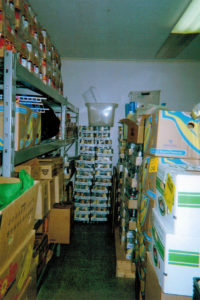
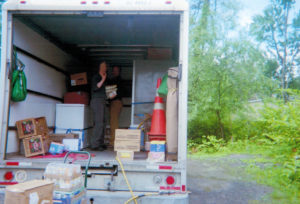

Food Pantry Rules

A food pantry is what it is because of three things:
the economic situation at the moment
the volunteers
the people who shop there.
The people come together looking for groceries but often, they want and need far more.
While the coronavirus pandemic rages, the food pantry lines get longer every pantry day because people, families, deal with change they didn’t ask for.
In short, they are rewriting their destiny stories without a road map or instructions.
A number of the people in the pantry, both shoppers and volunteers, didn’t know about food pantries until circumstances set up a situation where they suddenly looked around a room and realized where they were.
There is a name for their category – SITUATIONAL POOR.
A person fits into the situational poor category when s/he lands in a situation created by an event such as a hurricane, fire, floor, pandemic, or other disaster which destroys the home, car, job.
Pantries offer much – peace, community, spiritual connection, groceries. I always think of a food pantry in the basement of a church as a cross between a church service and a busy pizza place.
A food pantry, and those connected with it, are not a program. They are a community. As volunteers, all we really do is open the door. As all the hungry people walk through the door, they undergo a change somehow.
Each person in a pantry, in whatever capacity, has experienced rejection in some way – too young, too old, too crazy, too sick, too poor, not poor enough.
The food pantry experience does not heal a person, nor does it change the story.
The food pantry experience does not offer therapy.
The food pantry is, instead, a conduit for each person’s own healing.
FOOD PANTRY RULES
Sign your name in the register as you enter the pantry.
Find a place in line.
Do not crowd or block the door to the pantry room.
No more than 2 shoppers are allowed in the pantry at one time.
No more than one new shopper is allowed in the pantry at one time.
Shop for a three-day supply of food for everyone in your household.
Place your selections on the table as you shop.
Respect the restrictions on certain foods.
Finish your shopping in 10 minutes.
Once you begin to bag your groceries, do not continue to shop.
Because the food availability is different each time you shop, it is best to visit the food pantry weekly.
Thank you.
Thurman Greco
P.S. The rules may be different at the pantry where you shop. Each food pantry is different. The space is different. The times the pantry is open is different. The management is different.
These specific rules were used in the food pantry I managed where the people were many, the space small, and the hours few.
Please forward this article to your preferred social media network.
Share it with your friends.
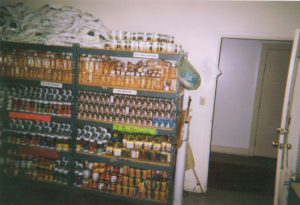
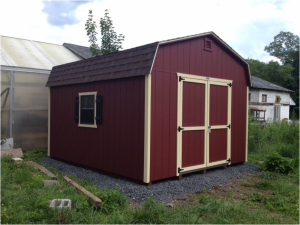


No Fixed Address

“No Fixed Address” is dedicated to those in our country with no roof over their heads. See your neighbors, your friends, your relatives, in new ways as they describe their daily lives in their own words.
The people in this new book reveal themselves to be both brave and fearless as they go about their activities: work, laundry, children’s homework, appointments. Mostly they live like the rest of us. They just have no roof over their heads.
“No Fixed Address” is my newest book in the Unworthy Hungry series. It’s easy to read and understand. You won’t be bored, not even for a minute.
I hope you’ll order it today. Get an extra copy for a friend!
This book has an extra surprise. When you get a copy, you’ll be making a donation to a good cause. You’ll be fighting hunger and homelessness.
It doesn’t get much better than that!
Thank you for reading this article!
Please forward it to your preferred social media network.
Thurman Greco


Situational Poor
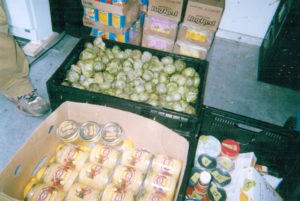
SITUATIONAL POOR – A person fits into a situational category of poverty when s/he lands in a situation created by an event such as a hurricane, fire, flood, pandemic, or other disaster which destroys the home, job, car.
Food pantries, food banks, soup kitchens are overworked in today’s pandemic world. The line of hungry people grows every time the place opens.
It’s bad enough that the line grows weekly. But, worse, many people in the line are confused, afraid. The never thought they would find themselves in a food pantry line with hundreds of other hungry, confused, afraid.
How should they act? What should they do?
What do they do with the food, once they get it home? It may be good food – both delicious and nutritious. However, it may not be anything recognizable. More often than not, pantry food doesn’t come with recipes. Super markets carry thousands of items. Food pantries carry maybe 50 different items and the labels on the cans and boxes aren’t even recognizable. The fresh produce may be organic but not be labeled as such.
So, now that the pantry food is in its new found kitchen, there is a big adjustment period involved in getting it to the table.
We are not so far removed from those people in the food pantry. They are our neighbors, friends, co-workers, relatives, classmates.
And, truth be told, we are all confused, and afraid.
Even though you may not be in the line, there are definitely things you can do. For starters, send a check to a food pantry, soup kitchen, or food bank in your area. If you don’t know where to send the check, look up an organization called:
Feeding America.
Feeding America is glue holding the food pantry world together. If that doesn’t work for you, search out: Regional Food Bank of Northeastern New York.
The Regional Food Bank of Northeastern New York, along with the Food Bank of the Hudson Valley, do an amazing job of making delicious, nutritious foods available to those who need it most.
These two food banks are only two in a large network of food banks located throughout the country. If you seeking a feeding facility in another part of the country, these organizations can guide you to one in the area best for you.
If you are uncomfortable sending money, this might be a good time to organize a food drive.
I wrote three action guides which list suggestions and options which are easy-to-understand and read. You can get these action guides free. Email me your mailing address and I’ll get your copies in the mail right away. I’m not even charging postage and handling.
Email me your mailing address to thurmangreco@gmail.com.
The guidelines and suggestions are practical. I feel confident you’ll discover practical things you can do to help on one of the action guides.
Thank you for caring.
Thanks for reading this article. Please refer it to your preferred social media network.
Thurman Greco
Woodstock, New York


